
Kód: 04562327
Mind Design II
Autor John Haugeland
Mind design is the endeavor to understand mind (thinking, intellect) in terms of its design (how it is built, how it works). Unlike traditional empirical psychology, it is more oriented toward the "how" than the "what." An experim ... celý popis
- Jazyk:
 Angličtina
Angličtina - Vazba: Brožovaná
- Počet stran: 486
Nakladatelství: MIT Press Ltd, 1997
- Více informací o knize

1786 Kč
Dostupnost:
50 % šance Máme informaci, že by titul mohl být dostupný. Na základě vaší objednávky se ho pokusíme do 6 týdnů zajistit.
Máme informaci, že by titul mohl být dostupný. Na základě vaší objednávky se ho pokusíme do 6 týdnů zajistit.Prohledáme celý svět
Mohlo by se vám také líbit
Darujte tuto knihu ještě dnes
- Objednejte knihu a zvolte Zaslat jako dárek.
- Obratem obdržíte darovací poukaz na knihu, který můžete ihned předat obdarovanému.
- Knihu zašleme na adresu obdarovaného, o nic se nestaráte.
Informovat o naskladnění knihy
Zadejte do formuláře e-mailovou adresu a jakmile knihu naskladníme, zašleme vám o tom zprávu. Pohlídáme vše za vás.
Více informací o knize Mind Design II
Nákupem získáte 179 bodů
 Anotace knihy
Anotace knihy
Mind design is the endeavor to understand mind (thinking, intellect) in terms of its design (how it is built, how it works). Unlike traditional empirical psychology, it is more oriented toward the "how" than the "what." An experiment in mind design is more likely to be an attempt to build something and make it work -- as in artificial intelligence -- than to observe or analyze what already exists. Mind design is psychology by reverse engineering. When Mind Design was first published in 1981, it became a classic in the then-nascent fields of cognitive science and AI. This second edition retains four landmark essays from the first, adding to them one earlier milestone (Turing's "Computing Machinery and Intelligence") and eleven more recent articles about connectionism, dynamical systems, and symbolic versus nonsymbolic models. The contributors are divided about evenly between philosophers and scientists. Yet all are "philosophical" in that they address fundamental issues and concepts; and all are "scientific" in that they are technically sophisticated and concerned with concrete empirical research. Contributors: Rodney A. Brooks, Paul M. Churchland, Andy Clark, Daniel C. Dennett, Hubert L. Dreyfus, Jerry A. Fodor, Joseph Garon, John Haugeland, Marvin Minsky, Allen Newell, Zenon W. Pylyshyn, William Ramsey, Jay F. Rosenberg, David E. Rumelhart, John R. Searle, Herbert A. Simon, Paul Smolensky, Stephen Stich, A.M. Turing, Timothy van Gelder
 Parametry knihy
Parametry knihy
Zařazení knihy Knihy v angličtině Humanities Philosophy Philosophy of mind
1786 Kč
- Plný název: Mind Design II
- Podnázev: Philosophy, Psychology, and Artificial Intelligence
- Autor: John Haugeland
- Jazyk:
 Angličtina
Angličtina - Vazba: Brožovaná
- Počet stran: 486
- EAN: 9780262581530
- ISBN: 0262581531
- ID: 04562327
- Nakladatelství: MIT Press Ltd
- Hmotnost: 658 g
- Rozměry: 229 × 152 × 21 mm
- Datum vydání: 06. March 1997
Oblíbené z jiného soudku
-

Knowing the Knower
700 Kč -
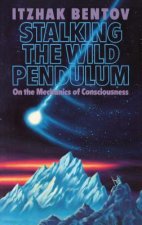
Stalking the Wild Pendulum
307 Kč -

Principles of Uncertainty
529 Kč -
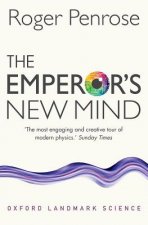
The Emperor's New Mind
330 Kč -

HERMENEUTICS OF THE SUBJECT
636 Kč -
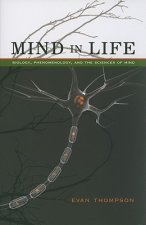
Mind in Life
922 Kč -

Notes Toward a Performative Theory of Assembly
506 Kč -

Responsibility and psychopathy
2269 Kč -

Kybalion; A Study of the Hermetic Philosophy of Ancient Egypt and Greece, by Three Initiates
251 Kč -
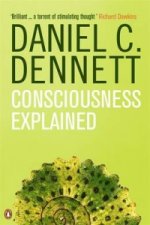
Consciousness Explained
357 Kč -

Book of Five Rings
246 Kč -
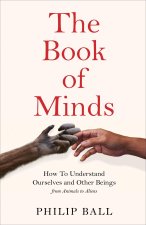
Book of Minds
543 Kč -

Essay Concerning Human Understanding
136 Kč -

Death
511 Kč -

Lost Knowledge of the Imagination
543 Kč -

Awakening the Buddha Within
407 Kč -

Sources of the Self
1099 Kč -
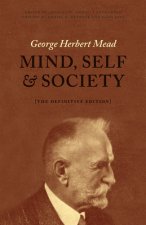
Mind, Self, and Society
899 Kč -
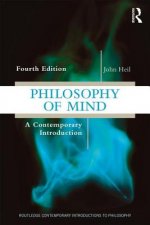
Philosophy of Mind
1415 Kč -

On Desire
389 Kč -
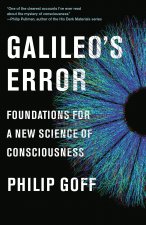
Galileo's Error
419 Kč -

Teachings of The Ocean
566 Kč -

Super Brain
464 Kč -
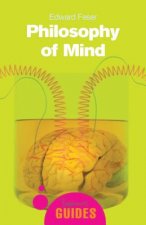
Philosophy of Mind
303 Kč -

Private Truths, Public Lies
1324 Kč -

Women, Fire, and Dangerous Things
593 Kč -

Consciousness
1404 Kč -

Ghost in the Machine
534 Kč -

Surfaces and Essences
752 Kč -

Little Book of Inner Peace
223 Kč -
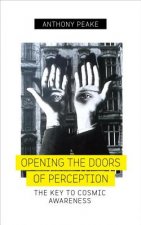
Opening The Doors of Perception
357 Kč -

Life In Freedom
321 Kč -

Passions
637 Kč -
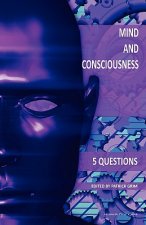
Mind and Consciousness
956 Kč -
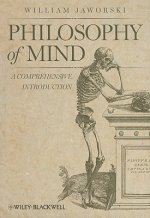
Philosophy of Mind - A Comprehensive Introduction
1213 Kč -

Character of Consciousness
1464 Kč -
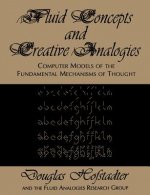
Fluid Concepts and Creative Analogies
577 Kč -
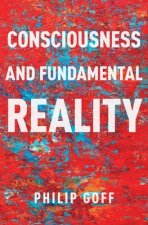
Consciousness and Fundamental Reality
3342 Kč -

Seeing Things as They Are
971 Kč -

Beyond Human Nature
403 Kč -
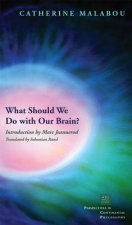
What Should We Do with Our Brain?
879 Kč -

Freud and Yoga
501 Kč -

Consciousness, Attention, and Conscious Attention
1479 Kč -

Cambridge Handbook of Cognitive Science
922 Kč -

Global Village
767 Kč -

Action, Belief, and Community
1981 Kč -

Oxford Handbook of Philosophy of Emotion
1843 Kč -

Solar Plexus or Abdominal Brain
732 Kč -

Introduction to the Philosophy of Psychology
1199 Kč
Osobní odběr Praha, Brno a 12903 dalších
Copyright ©2008-24 nejlevnejsi-knihy.cz Všechna práva vyhrazenaSoukromíCookies





 Vrácení do měsíce
Vrácení do měsíce 571 999 099 (8-15.30h)
571 999 099 (8-15.30h)